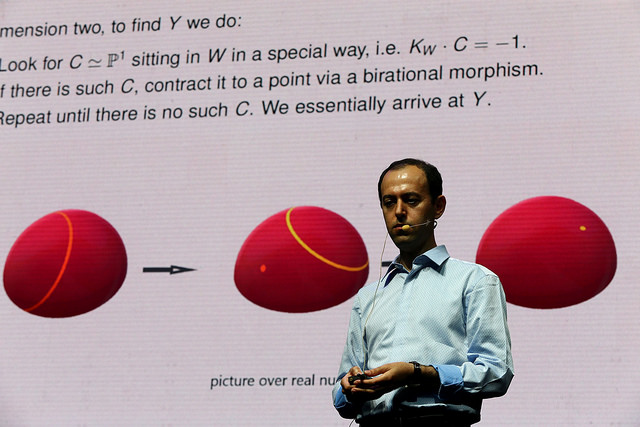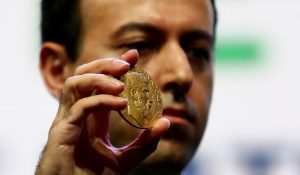August 6, 2018, 5:37 pm

Crowds of international delegates gathered around Caucher Birkar following his plenary presentation at Riocentro this afternoon. Everyone wanted a photo with the Kurdish mathematician, who was awarded a Fields Medal for his contribution to the minimum model program in algebraic geometry last Tuesday.
Chairing the packed plenary session at ICM 2018 this afternoon Jungkai Alfred Chen from the National Taiwan University said he was “fortunate to know him in person for a long time,” as Birkar was a visiting scholar at his university from 2014 – 2016. “He’s always very devoted and willing to share his mathematical ideas. I’m proud that his project was made in Taiwan.”
Read more:

Birkar is known for his creative approach to math and algebraic geometry and Chen referred to the recent work of his colleague as a “huge breakthrough in birational geometry”. Recounting some of Birkar’s early life experience as a toddler in war-torn Kurdistan, before seeking refuge in the United Kingdon, Chen said: “he has a very inspiring story, especially for those young people in difficult place, in a difficult situation.”
Algebraic geometry is about studying spaces, defined by polymonial equations (these spaces are called varieties). “Roughly speaking, birational algebraic geometry is about classifying these spaces to put them into groups, up to birational automorphism – that just means you allow a little bit more flexibility of working with these spaces, you can modify small parts of these spaces, but leaving most of it intact,” explained Birkar. “The main goal is to show that each of these classes you can find some representative, which is simpler in a sense than others. The minimum model program is exactly this process of finding these simpler spaces.”
After his return from Rio, Birkar plans to continue to focus his research on problems in birational geometry for now. “There are many interesting and very difficult problems, but maybe in the far future, I will also look at areas close to birational geometry, maybe also analytic geometry.” He referred to a chat he had the previous day with geometry guru Michael Atiyah (89), who was sitting in the front row at the plenary session this afternoon. The 1966 Fields Medal winner told him “a mathematician without a dream is not a mathematician.”